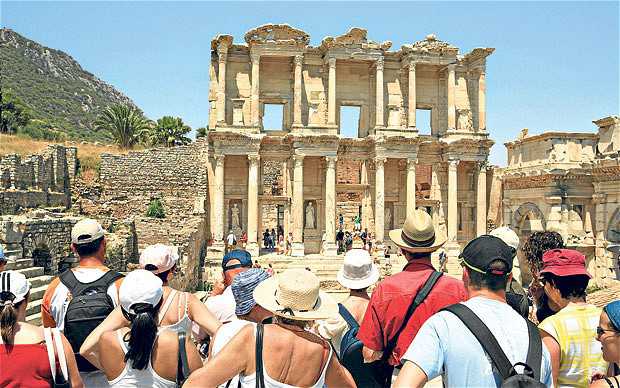The PKK and the Kurdish Fight for Independence
by Aliza Marcus
New York: New York University Press, 2007. 349 pp. $35
Reviewed by Michael Rubin
Middle East Quarterly
Summer 2008
Most writers on the Kurdistan Workers’ Party, best known by its Kurdish language acronym, the PKK, substitute advocacy for accuracy, so their books about the PKK tend to have limited practical use for policymakers. But Marcus, a former international correspondent for The Boston Globe who spent several years covering the PKK, has done important work in Blood and Belief. While sympathetic to her subject—the substitution of “militant” for “terrorist” grates—she retains professional integrity and does not skip over inconvenient parts of the PKK narrative such as its predilection to target Kurdish and leftist competitors rather than the Turks; the patronage it has received from the Syrian government; and the important role of European states and the Kurdish diaspora in its funding.
Blood and Belief has four sections: on PKK leader Abdullah Öcalan’s life and the PKK’s beginnings; the PKK’s consolidation of power; the civil war; and the aftermath of Öcalan’s 1999 capture.
The Kurds inhabit a region that spans Syria, Iraq, Turkey, and Iran, and Marcus does not let national borders constrain her analysis. Events in Iraq—such as the squabbling between Patriotic Union of Kurdistan leader Jalal Talabani and Kurdistan Democratic Party leader Masoud Barzani—influenced Öcalan, who concluded that he should tolerate no dissent. “We believed in socialism, and it was a Stalin-type of socialism we believed in,” one early PKK member relates.
Steeped in Kurdish and Turkish history, Marcus provides better context than many other journalists who have tackled this subject. The PKK took hold, she shows, largely because of the weakness of the Turkish state in the 1970s. Between 1975 and 1980, the Turkish government barely functioned. After the 1980 coup, the Turkish military restored order. But when Barzani offered the PKK shelter in northern Iraq, the group remained beyond reach, allowing it to plan and launch a full-scale guerilla war against Turkey. Marcus concludes that the group’s continued survival in Turkey is because, at some level and among some constituents, it remains popular; its support is not all driven by intimidation as some Turkish analysts claim.
Marcus impressively covers the civil war years (1984-99), and her narrative, combining dialogue and context, is rich and accessible. While many journalists and authors satisfy themselves with a single round of interviews, Marcus concentrates not on active PKK members, who she realizes do not enjoy the freedom to speak, but rather on past members, villagers, and family members whose accounts she cross-checks. She also incorporates Turkish language press accounts and interviews with Turkish officials.
It is unfortunate, though, that her coverage of PKK resurgence, between 1999 and 2007, is just thirteen pages long. An exploration of how Öcalan has retained control while in prison and where he and his henchmen might take the PKK has seldom been more relevant. One hopes that this new chapter of PKK history will become the basis for a sequel.
***********************************************************************
Kurdish Identity
Human Rights and Political Status
Edited by Charles G. MacDonald and Carole A. O’Leary. Gainesville: University Press of Florida, 2007. 336 pp. $65
Reviewed by Michael Rubin
Middle East Quarterly
Summer 2008
The reader of Kurdish Identity, published in 2007, will find himself reading such timely insights as former State Department Iraq coordinator Francis Ricciardone explaining that, “Of course, we have no relations at all with [Baghdad],” and former deputy assistant secretary of state David Mack writing that he understands both Kurdish aspirations and “the potential danger that a ruthless regime in Baghdad poses,” as though Saddam Hussein’s regime had not ceased to exist in 2003.
The collection of articles published by MacDonald and O’Leary, Kurdish experts at, respectively, Florida International University and American University, might have been useful to practitioners in April 2000, the date of the conference for which they were written, but the articles are now out-of-date.
Some chapters are useful to historians. Robert W. Olson’s essay on Turkish-Iranian relations between 1997 and 2001 capably reviews that period. Kurdistan Regional Government financial advisor Stafford Clarry’s analysis of the U.N.’s humanitarian program retains value because of his precision and attention to detail, all the more so in the wake of the Oil-for-Food program scandal, which he helped expose. Michael Gunter’s apt analysis of how the capture of Kurdish terrorist leader Abdullah Öcalan catalyzed Turkey’s EU accession drive stands the test of time.
The editors conclude with an essay updating the reader on world events. Both are academics well worth reading, but they provide no insights in this collection not already published elsewhere. Their comments in passing on the dire situation of Syrian Kurds, who do not enjoy equal protection under the law, raises the question why Kurdish Identity does not address this subject.
Had MacDonald and O’Leary reassembled their April 2000 conference participants to reconsider their contributions seven years later and analyze where they were right and wrong, Kurdish Identity would have advanced scholarship in a novel way. As it stands, however, their book offers too little and much too late, suggesting that academics live in a world of publish or perish with the content of those publications sometimes a secondary consideration.






